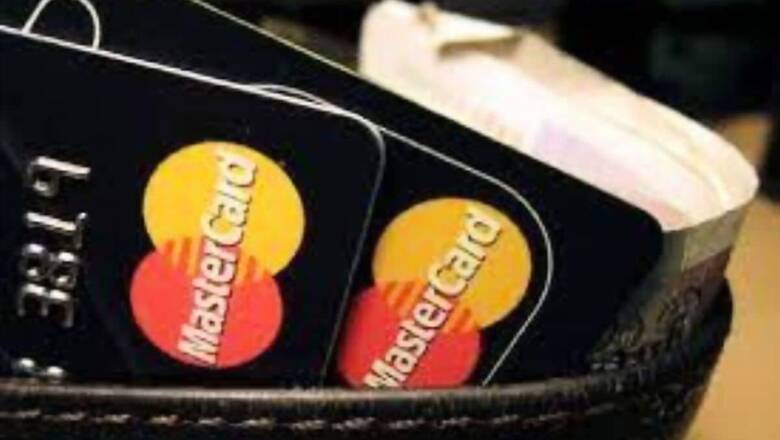
views
The Reserve Bank of India (RBI) had said in a statement that a ban on Mastercard would be imposed effective from June 22. The reason behind the ban of this card was cited as non-compliance with local data storage guidelines. This big impact is going to be felt by at least five private banks, as well as non-bank lenders and the card-issuing company itself. The banks that will be the most affected by this change are the RBL Bank, YES Bank and Bajaj Finserv according to a Nomura Research report. All the credit-card schemes that these lenders offer, come under the Mastercard.
A little further down the spectrum, Induslnd Bank, ICICI Banks and Axis Bank will be the second most affected as they have around 35 to 40 per cent of their credit card schemes tied to the banned card, according to the report. The exception to this category is HDFC Bank. Even though this lender has around 45 per cent of its credit card schemes under Mastercard, it will not feel the impact as much, since it is already restricted as a bank from issuing new cards. Another major bank, the State Bank of India (SBI), will also have to deal with the fallout, though minimal. The bank only has around 10 per cent of its schemes coming under the Mastercard ambit as per the report.
Another issue that surfaces in light of this ban is the co-branding issue. Co-branded credit cards that are associated with Mastercard will have to be stopped. Banks such as SBI, Axis Bank and RBL Bank, which all have co-branded credit cards, will have to undertake a massive revamp of their card branding.
What Are the Implications for Your Debit and Credit Card?
This change will by no means, affect existing cardholders of Mastercard. Customers who are using Mastercard in debit or credit form, need not worry. RBI has made it clear that this change will not affect existing cardholders and only applies to banks and customers going forward. All the services that you had been using can be continued on the Mastercard. Though it is banned in the above-mentioned institutions, as a payment system, the card is allowed to function within the country, under the ‘Payment and Settlement Act System Act 2019’.
Having said that, the RBI has prohibited the issuing of debit cards, credit cards and even pre-paid cards by banks to new customers going forward. This order comes into effect from July 22.
This is not the first time that something like this has occurred. Previously, RBI had barred American Express Banking Corp. and Diners Club from onboarding any more new customers onto their platform from May 1. The reason behind this was cited as something similar to the reasoning behind Mastercard’s ban. RBI claimed that the entities were non-compliant with the directives and guidelines given on the storage of payment systems data. These stringent measures by RBI come in light of the 2018 mandate wherein the banking entity made it clear that all service providers must store and process data related to their respective payment systems that are only in India.
Read all the Latest News, Breaking News and Coronavirus News here.
















Comments
0 comment